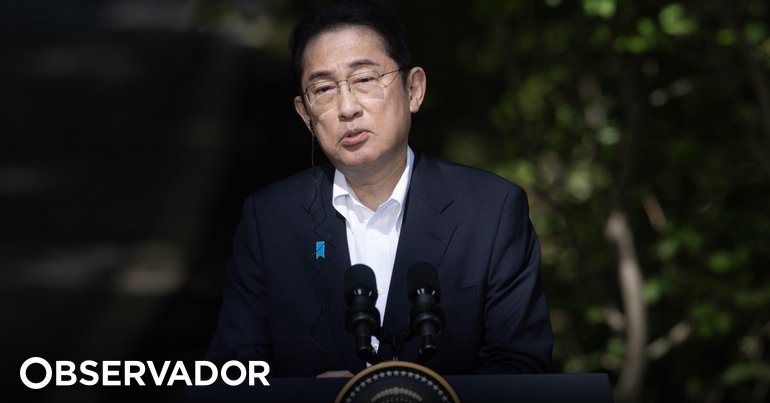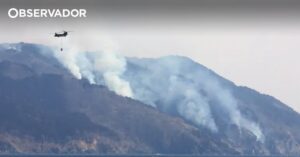
Japanese Prime Minister Fumio Kishida has announced that he will visit Fukushima on Sunday before deciding on a date to release treated water from the nuclear power plant into the sea, something that should start at the end of the summer. Kishida, who is attending a trilateral summit in the United States with US President Joe Biden and South Korean President Yoon Suk Yeol, told reporters he would visit the factory once he returned to Japan.
“The discharge of treated water is an issue that cannot be postponed if we want to progress regularly in the dismantling and reconstruction of Fukushima”, said the head of government.
Kishida said the Japanese executive was in the “final stages” of decision-making, but declined to reveal the exact date when water from the nuclear plant would begin to be released into the Pacific Ocean. The prime minister said the decision will take into account preparations and security measures to prevent possible damage to the reputation of Japanese seafood.
“Before making a final decision, I want to take a first-hand look at the terrain and see that maximum security measures have been taken for the release and that everyone involved is committed with a strong sense of responsibility for the project,” said Kishida.
The official added that he wants to ensure that the directors of the plant’s operator, Tokyo Electric Power Co (TEPCO), share a strong commitment to the eventual closure of the plant and the recovery of the Fukushima region.
Japan intends to discharge into the sea, over the next few decades, water from the Fukushima Daiichi nuclear power plant, in the northeast of the country, devastated by an earthquake and tsunami in March 2011.
At the beginning of 2024, the plant should run out of space to store about 1.33 million tons of water, from rain, groundwater or injections needed to cool the cores of the nuclear reactors that collapsed in 2011. Japanese government such as TEPCO have warned that the water must be removed, to prevent accidental leaks from the tanks and to make room for future infrastructure dismantling.
Despite being approved by the International Atomic Energy Agency, the plan raised concerns in neighboring countries, sparking popular protests in South Korea and prompting China to ban the import of some foodstuffs from 10 provinces in Japan.
In late June, the commissioner of the Chinese Ministry of Foreign Affairs in Macau criticized the Japanese plan, calling it irresponsible and violating international law. The South Korean government has been conducting various tests to demonstrate to people that there is no risk of environmental or food contamination from Fukushima discharges.
Source: https://observador.pt/2023/08/19/primeiro-ministro-do-japao-visita-fukushima-antes-do-inicio-de-descarga-de-agua/

